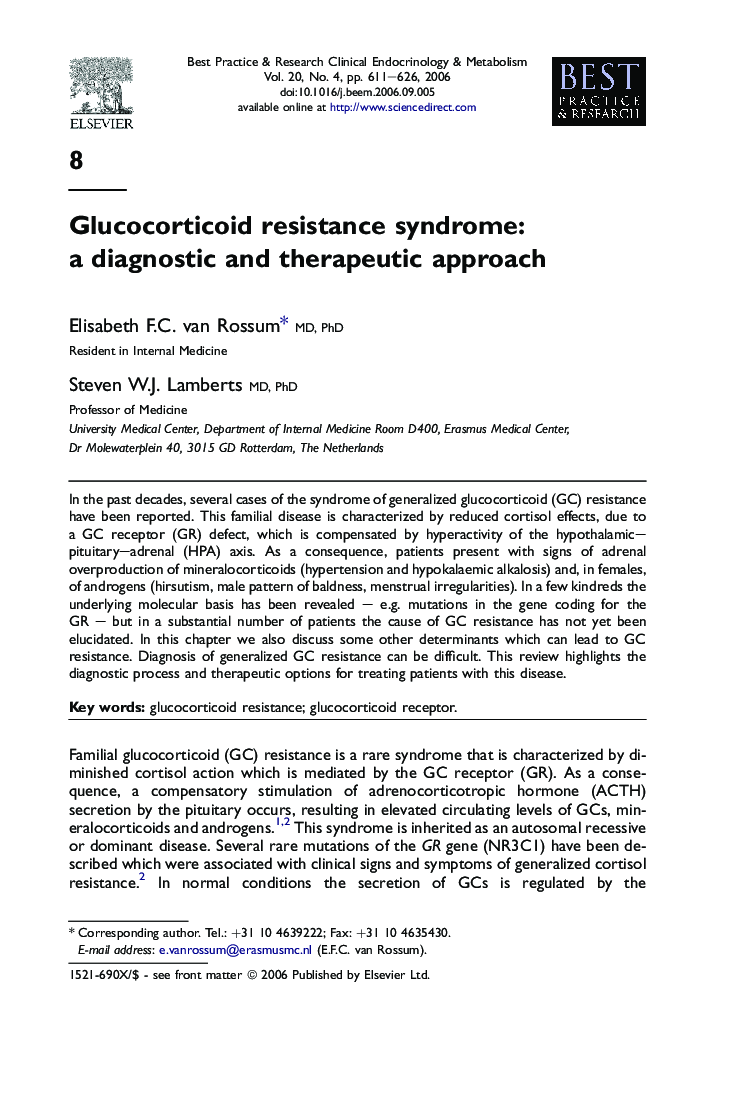| Article ID | Journal | Published Year | Pages | File Type |
|---|---|---|---|---|
| 2792269 | Best Practice & Research Clinical Endocrinology & Metabolism | 2006 | 16 Pages |
In the past decades, several cases of the syndrome of generalized glucocorticoid (GC) resistance have been reported. This familial disease is characterized by reduced cortisol effects, due to a GC receptor (GR) defect, which is compensated by hyperactivity of the hypothalamic–pituitary–adrenal (HPA) axis. As a consequence, patients present with signs of adrenal overproduction of mineralocorticoids (hypertension and hypokalaemic alkalosis) and, in females, of androgens (hirsutism, male pattern of baldness, menstrual irregularities). In a few kindreds the underlying molecular basis has been revealed – e.g. mutations in the gene coding for the GR – but in a substantial number of patients the cause of GC resistance has not yet been elucidated. In this chapter we also discuss some other determinants which can lead to GC resistance. Diagnosis of generalized GC resistance can be difficult. This review highlights the diagnostic process and therapeutic options for treating patients with this disease.
